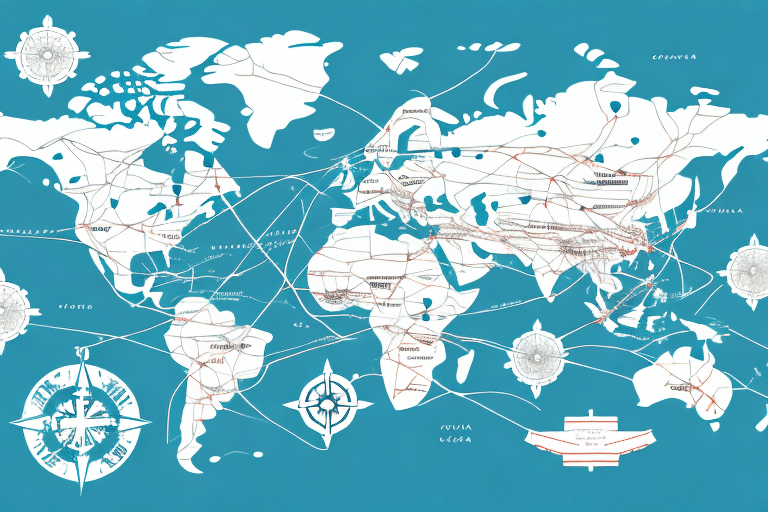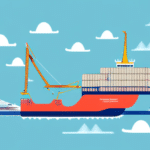Introduction to Shipping Terms in International Trade
Shipping terms are a fundamental aspect of international trade, outlining the responsibilities and costs borne by both the buyer and the seller throughout the shipping process. A solid understanding of these terms is crucial for businesses engaged in global trade to ensure smooth transactions and minimize risks. This guide delves into the most common shipping terms, including Incoterms, FOB, CIF, EXW, and more, providing detailed explanations and insights to help you navigate the complexities of international shipping.
Understanding Incoterms
What Are Incoterms?
International Commercial Terms (Incoterms) are a set of standardized trade terms published by the International Chamber of Commerce (ICC). These terms are widely used in international contracts for the sale of goods, providing a universal language that defines the responsibilities of buyers and sellers in global trade.
Key Components of Incoterms
- Cost Allocation: Specifies which party is responsible for costs such as transportation, insurance, and duties.
- Risk Transfer: Defines the point at which the risk of loss or damage to the goods transfers from the seller to the buyer.
- Delivery Location: Indicates where the goods must be delivered, whether at the seller’s premises, a port, or the buyer’s location.
Latest Updates to Incoterms
The most recent revision, Incoterms 2020, introduced several changes to better reflect the evolving nature of global trade. Notably, the term DAT (Delivered at Terminal) was renamed to DPU (Delivered at Place Unloaded) to clarify that delivery can occur at any specified place, not just a terminal.
Common Shipping Terms Explained
FOB (Free on Board)
FOB specifies that the seller is responsible for loading the goods onto the shipping vessel. Once loaded, the buyer assumes responsibility for transportation, insurance, and any subsequent risks. Learn more about FOB.
CIF (Cost, Insurance, Freight)
CIF indicates that the seller covers the cost, insurance, and freight necessary to bring the goods to the port of destination. The buyer takes over responsibility once the goods arrive. It’s essential to understand potential additional costs such as customs fees and taxes. For detailed insights, refer to the Export.gov guide on CIF.
EXW (Ex Works)
EXW places the minimum responsibility on the seller, who makes the goods available at their premises. The buyer is responsible for all transportation costs and risks from that point onward. This term is particularly advantageous for sellers but requires buyers to manage logistics comprehensively.
DDP (Delivery Duty Paid)
DDP assigns maximum responsibility to the seller, who handles all costs and risks associated with delivering the goods to the buyer’s location, including duties and taxes. This term offers convenience for buyers but increases the seller’s obligations.
Payment Terms in Shipping
Freight Collect vs. Prepaid Shipping
Choosing between Freight Collect and Prepaid shipping terms can impact the control and cost distribution in a transaction. Freight Collect requires the buyer to pay for shipping upon receipt, providing them greater control over the shipping process. Conversely, Prepaid shipping has the seller covering the shipping costs upfront, which can simplify the transaction for the buyer but may lead to higher product prices. Understanding the implications of each option is crucial for effective cost management.
Insurance in Shipping
Insurance is a critical component of shipping terms, safeguarding both buyers and sellers against potential losses from damaged or lost goods. Marine Cargo Insurance is the most common type, covering a range of risks associated with transportation by sea, air, or land. According to the International Chamber of Shipping, having adequate insurance can prevent significant financial setbacks and build trust between trading partners.
Negotiating Favorable Shipping Terms
When negotiating shipping terms with suppliers, it is essential to evaluate the risks and costs associated with each option carefully. Consider factors such as the supplier’s location, the reliability of carriers, and the potential for unforeseen expenses. Effective negotiation can lead to mutually beneficial agreements that enhance operational efficiency and reduce overall costs. Utilizing resources like Export.gov can provide valuable guidance during this process.
Managing Customs and Taxes
Customs fees and taxes are pivotal considerations in international shipping. These charges vary based on the country of origin, destination, type of goods, and chosen shipping terms. Understanding the World Bank’s resources on trade barriers can help businesses navigate the complexities of customs regulations and avoid unexpected costs or delays. Proper documentation and compliance with local laws are essential for smooth customs clearance.
Common Mistakes and Best Practices
Avoiding common mistakes such as neglecting to negotiate shipping terms in advance, misunderstanding insurance requirements, or assuming domestic terms apply internationally is crucial for successful international trade. Implementing best practices like thorough research, seeking expert advice, and maintaining clear communication with trading partners can mitigate risks and enhance the efficiency of shipping operations.
Impact of Global Events on Shipping Terms
Global events, such as geopolitical changes and pandemics, can significantly influence shipping terms and international trade. For instance, the Brexit process has altered shipping terms between the UK and the EU, introducing new documentation and customs requirements. Staying informed through reliable sources like the World Trade Organization ensures that businesses can adapt to changing circumstances and maintain seamless operations.
Conclusion
Mastering shipping terms is essential for any business involved in international trade. By understanding and effectively negotiating terms like Incoterms, FOB, CIF, EXW, and others, businesses can minimize risks, control costs, and build strong, reliable relationships with their trading partners. Staying informed about insurance requirements, customs regulations, and global events further enhances the ability to navigate the complexities of global shipping successfully.






















